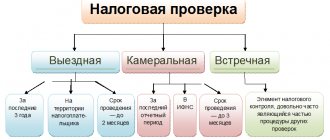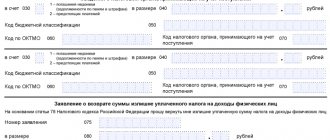Article 210 of the Tax Code of the Russian Federation. Tax base (current version)
There are disputes between the tax authority and taxpayers about whether the cost of travel from the employee’s place of residence to the collection point or to the place of work and back is subject to personal income tax.
The Tax Code of the Russian Federation does not contain clarifications on this issue.
According to the letter of the Ministry of Finance of Russia dated August 20, 2009 N 03-04-06-02/60, in accordance with paragraph 3 of Article 217 of the Tax Code of the Russian Federation and subparagraph 2 of paragraph 1 of Article 238 of the Tax Code of the Russian Federation, all types established by the legislation of the Russian Federation are not subject to taxation on personal income tax, legislative acts of constituent entities of the Russian Federation, decisions of representative bodies of local self-government of compensation payments (within the limits established in accordance with the legislation of the Russian Federation), in particular, related to the performance of labor duties by an individual. The concept of compensation, as well as cases of providing compensation related to the performance by an employee of his labor duties, are established by the Labor Code of the Russian Federation. Article 302 of the Labor Code of the Russian Federation defines a list of guarantees and compensations for persons working on a rotational basis. This list is closed. Payment by the organization for the travel of workers from their place of permanent residence to the place of work and back is not provided for by Article 302 of the Labor Code of the Russian Federation.
Thus, according to the Russian Ministry of Finance, the cost of travel for employees from their place of permanent residence to the place of work and back is not a compensation payment and is subject to taxation on personal income tax in the generally established manner.
In a letter dated June 22, 2009 N 03-03-06/1/418, the regulatory authority explained that Article 41 of the Tax Code of the Russian Federation defines income as an economic benefit in monetary and in-kind form, taken into account if it is possible to evaluate it and to the extent that the benefit can be assessed, determined for individuals in accordance with Chapter 23 of the Tax Code of the Russian Federation. By virtue of paragraph 1 of Article 210 of the Tax Code of the Russian Federation, when determining the tax base, all income of the taxpayer received in cash and in kind is taken into account. Payment for a taxpayer (in whole or in part) by organizations for goods (work, services) in his interests, in accordance with subparagraph 1 of paragraph 2 of Article 211 of the Tax Code of the Russian Federation, is recognized as income received by the taxpayer in kind. Thus, payment by an organization for travel for employees or reimbursement to employees of the cost of travel from the place of residence to the place of assembly or from the place of residence to the place of work and back, provided that the organization’s employees have the opportunity to independently purchase travel tickets, is recognized as income of employees received in kind . Consequently, according to the Russian Ministry of Finance, the cost of these tickets paid by the organization is subject to taxation on personal income tax in the prescribed manner.
A similar position is contained in the letter of the Ministry of Finance of Russia dated 05/08/2009 N 03-04-06-01/112.
There is another position on this issue.
The Federal Antimonopoly Service of the West Siberian District, in Resolution dated November 22, 2007 N F04-7996/2007 (40258-A75-7), came to the conclusion that the organization is not obliged to calculate and withhold personal income tax on amounts paid to employees as reimbursement of expenses in in connection with travel to and from the place of vacation, as well as in connection with the travel of shift workers from their place of residence to their place of work, since these payments do not relate to wages and are of a compensatory nature.
The Federal Antimonopoly Service of the West Siberian District, in Resolution dated September 11, 2007 N F04-5867/2007 (37585-A81-29), came to the conclusion that compensation payments related to the performance of work duties by the defendant’s employees, namely the travel of these persons from place of residence to place work and vice versa are not subject to personal income tax.
The Federal Antimonopoly Service of the West Siberian District, in Resolution dated February 13, 2009 N F04-482/2009(20348-A81-14), based on the Regulations on the rotation method, came to the conclusion that the organization is obliged to compensate for the employee’s travel from the place of residence to the collection point. Consequently, reimbursement to employees for expenses incurred is compensation and is not subject to personal income tax.
Paragraph 3 of Article 210 of the Tax Code of the Russian Federation establishes that income for which a tax rate of 13 percent is provided is subject to reduction.
Tax deductions are subject to reduction, namely: standard tax deductions; social tax deductions; property tax deductions; professional tax deductions; tax deductions when carrying forward losses from transactions with securities and transactions with financial instruments of futures transactions traded on the organized market.
Analyzing paragraph 3 of Article 210 of the Tax Code of the Russian Federation, the financial department indicated that a social tax deduction is provided to the taxpayer in respect of income on which in the tax period (calendar year) personal income tax was actually paid to the budget at a rate of 13 percent.
Thus, if during the tax period the taxpayer did not have income taxed on personal income tax at a rate of 13 percent, he is not entitled to receive the specified social tax deduction for this period (see letter dated November 19, 2009 N 20-14/2/ [ email protected] ).
In a letter dated 04/07/2011 N 03-04-06/10-81, the Ministry of Finance of Russia explained that when concluding civil contracts for a certain period, an organization paying income under these contracts to an individual is a tax agent for this taxpayer only during the period of validity such agreements and, accordingly, the tax base for personal income tax is formed only during these periods.
Taking into account the above, when an organization concludes civil agreements with an individual in certain months of the tax period, standard tax deductions are provided to this individual only for those months in which these agreements were in force.
As the Ministry of Finance of Russia noted, the social tax deduction is provided to the taxpayer not in the form of a refund of the amount paid by the taxpayer-parent for the education of his children under the age of 24, but in the form of a refund (in whole or in part) of the personal income tax he paid (see letter dated March 31, 2011 N 03-04-05/7-203).
In a letter dated March 16, 2011 N 03-04-05/4-152, the Russian Ministry of Finance noted that the amount of income from the sale of a share in the authorized capital of an organization is subject to personal income tax and can be reduced by the amount of expenses actually incurred and documented, associated with the receipt of said income.
In a letter dated 03/05/2011 N 03-04-05/8-121, the Russian Ministry of Finance explained that the tax base for income received by an individual under a civil law agreement is defined as the difference between the amount of payments under the agreement and the amount actually made and documented confirmed expenses incurred by the contractor when performing work (services) under the contract.
At the same time, such taxpayers exercise the right to receive professional tax deductions by submitting a written application to the tax agent, and in his absence, by submitting a tax return to the tax authority at the end of the tax period.
In a letter dated 02/18/2011 N 03-04-05/10-103, the official body indicated that shares of members of a consumer cooperative are the property rights of their members, and therefore the property tax deduction provided for in subparagraph 1 of paragraph 1 of Article 220 of the Tax Code of the Russian Federation does not apply .
Taking into account the fact that when selling shares of members of a consumer cooperative, property deductions are not applied, all income received by the taxpayer from such sale is subject to personal income tax.
And in a letter dated 02/18/2011 N 03-04-05/7-106, the Ministry of Finance of Russia indicated that if an employer applies for a property tax deduction not from the first month of the tax period, the deduction is provided starting from income paid in that month, in which the taxpayer applied for its provision.
Paragraph 3 of paragraph 3 of the commented article was introduced by Federal Law dated November 21, 2011 N 330-FZ “On Amendments to Part Two of the Tax Code of the Russian Federation, Article 15 of the Law of the Russian Federation “On the Status of Judges in the Russian Federation” and the recognition as invalid of certain provisions of legislative acts Russian Federation".
This paragraph establishes that for personal income tax payers receiving pensions in accordance with the legislation of the Russian Federation, in the absence of income taxed at the tax rate established by paragraph 1 of Article 224 of the Tax Code of the Russian Federation in the tax period, the difference between the amount of tax deductions and the amount of income in respect of which the tax rate established by paragraph 1 of Article 224 of the Tax Code of the Russian Federation is provided for, and may be transferred to previous tax periods in the manner prescribed by Chapter 23 of the Tax Code of the Russian Federation.
Analyzing paragraph 4 of Article 210 of the Tax Code of the Russian Federation, the Ministry of Finance of Russia explained that, defining the tax base as the monetary expression of income subject to taxation, it does not provide for the possibility of any deductions, including deductions for expenses provided for in Article 220 of the Tax Code of the Russian Federation.
If, at the end of the tax period, an individual is not a tax resident of the Russian Federation, such an individual will not have grounds to apply to the tax authorities in order to receive a property tax deduction provided for in subparagraph 1 of paragraph 1 of Article 220 of the Tax Code of the Russian Federation (see letter dated 11.10 .2010 N 03-04-06/6-248).
Analyzing paragraph 5 of Article 210 of the Tax Code of the Russian Federation, the Ministry of Finance of Russia, in a letter dated June 25, 2010 N 03-04-06/6-135, drew attention to the fact that for the purposes of taxation on personal income, daily allowances in foreign currency are recalculated into Russian rubles according to the official exchange rate of the Bank of Russia on the date of actual receipt of income.
In a letter dated 04/09/2010 N 03-04-06/2-67, the Russian Ministry of Finance indicated that the market value of securities expressed in foreign currency is converted into rubles at the official exchange rate of the Central Bank of the Russian Federation on the date of acquisition of securities, that is on the date of transfer of rights to the specified securities.
Official position.
The letter of the Ministry of Finance of Russia dated September 11, 2013 N 03-04-05/37474 addressed the issue of accounting for personal income tax purposes for exchange rate differences in the cost of goods purchased by an individual entrepreneur for foreign currency. On this issue, the Russian Ministry of Finance gave the following clarification.
The expenses of an individual entrepreneur, including expenses for the purchase of goods, are taken into account by him on the date of their actual implementation. In this regard, the exchange rate difference in the cost of goods purchased for foreign currency between the dates of receipt of goods in the warehouse and the date of their payment for the purposes of paying personal income tax is not determined.
Commentary to Art. 210 Tax Code of the Russian Federation
The tax base for personal income tax includes all income of the taxpayer received by him during the tax period. At the same time, the Tax Code identifies the following types of income that should be taken into account when calculating the tax base:
- income received in cash;
— income received in kind;
- income received in the form of material benefits.
For tax purposes, all income is taken into account in full (without taking into account any deductions by order of the taxpayer, court decisions or other authorities). Such deductions do not reduce the tax base.
The taxpayer's income expressed in foreign currency is recalculated into rubles at the exchange rate of the Central Bank of the Russian Federation established on the date of actual receipt of income.
The Tax Code provides for four tax rates on personal income - 9, 13, 30 and 35 percent.
The tax rate that must be applied when calculating tax depends not on the amount, but on the type of income. Article 210 of the Tax Code of the Russian Federation contains a special clause: “the tax base is determined separately for each type of income for which different tax rates are established.”
The majority of income received by taxpayers (salaries and other payments as remuneration, remuneration under civil contracts, etc.) is taxed at a rate of 13%. The same rate applies to income received by individual entrepreneurs (who do not use special tax regimes), as well as private notaries and persons engaged in private practice.
For some income, special tax rates are established: 35%, 30% and 9%.
The following types of income are taxed at a rate of 35%.
1. The cost of any winnings and prizes received in competitions, games and other events for the purpose of advertising goods, works and services (in an amount exceeding 4,000 rubles per person per tax period - calendar year).
2. Insurance payments under voluntary life insurance contracts concluded for a period of less than five years in excess of the amounts provided for in Article 213 of the Tax Code of the Russian Federation.
3. Interest income on deposits in banks to the extent that they exceed the amount calculated based on 3/4 of the current refinancing rate of the Central Bank of the Russian Federation, during the period for which interest is accrued, on ruble deposits (except for time pension deposits made for a period of at least six months) and 9% per annum on deposits in foreign currency.
4. Amounts of savings on interest when taxpayers receive borrowed (credit) funds on preferential terms:
- for ruble loans - as the excess of the amount of interest for the use of borrowed funds expressed in rubles, calculated on the basis of 3/4 of the current refinancing rate established by the Central Bank of the Russian Federation on the date of receipt of such funds, over the amount of interest calculated based on the terms of the agreement;
- for foreign currency loans - as the excess of the amount of interest for the use of borrowed funds, expressed in foreign currency, calculated on the basis of 9% per annum, over the amount of interest calculated on the basis of the terms of the agreement.
An exception to this rule is “income in the form of material benefits received from savings on interest for the use by taxpayers of targeted loans (credits) received from credit and other Russian organizations and actually spent by them on new construction or the acquisition of a residential building or apartment on the territory of the Russian Federation or share(s) in them, on the basis of documents confirming the intended use of such funds.”
All income received by individuals who are not tax residents of the Russian Federation is taxed at a rate of 30 percent.
The following are taxed at a rate of 9 percent:
— income from equity participation in the activities of organizations received in the form of dividends;
- income in the form of interest on mortgage-backed bonds issued before January 1, 2007, as well as on income of the founders of the trust management of mortgage coverage received on the basis of the acquisition of mortgage participation certificates issued by mortgage coverage managers before January 1, 2007.


